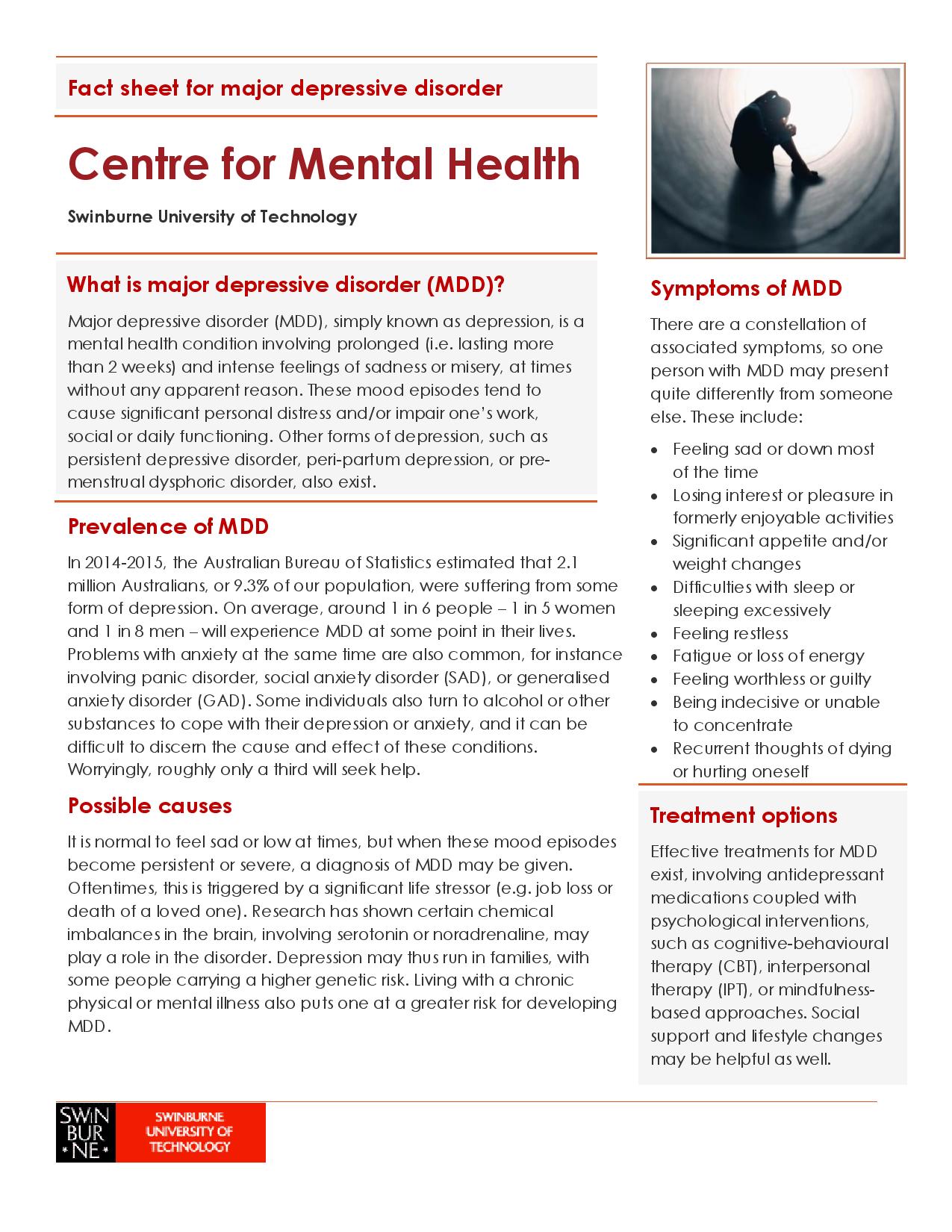Major Depressive Disorder
Major Depressive Disorder (MDD), simply known as depression, is a mental health condition involving prolonged (i.e. lasting more than 2 weeks) and intense feelings of sadness or misery, at times without any apparent reason.
Our findings
The mood episodes attributed to MDD tend to cause significant personal distress and/or impair one’s work, social or daily functioning.
Other forms of depression, such as persistent depressive disorder, peri-partum depression, or premenstrual dysphoric disorder, also exist.
Key findings
2.1 million
Australians suffering from depression (2015)
1 in 5
Women will experience MDD
1 in 8
Men will experience MDD
Prevalence of MDD
In 2014-2015, the Australian Bureau of Statistics estimated that 2.1 million Australians, or 9.3 per cent of our population, were suffering from some form of depression. On average, around 1 in 6 people – 1 in 5 women and 1 in 8 men – will experience MDD at some point in their lives.
Problems with anxiety at the same time are also common, for instance involving panic disorder, Social Anxiety Disorder (SAD) or Generalised Anxiety Disorder (GAD).
Some individuals also turn to alcohol or other substances to cope with their depression or anxiety, and it can be difficult to discern the cause and effect of these conditions. Worryingly, roughly only a third will seek help.
Possible causes
It is normal to feel sad or low at times, but when these mood episodes become persistent or severe, a diagnosis of MDD may be given. Oftentimes, this is triggered by a significant life stressor (e.g. job loss or death of a loved one).
Research has shown certain chemical imbalances in the brain, involving serotonin or noradrenaline, may play a role in the disorder. Depression may thus run in families, with some people carrying a higher genetic risk.
Living with a chronic physical or mental illness also puts one at a greater risk for developing MDD.
Symptoms of MDD
There are a constellation of associated symptoms, so one person with MDD may present quite differently from someone else.
These include:
- Feeling sad or down most of the time
- Losing interest or pleasure in formerly enjoyable activities
- Significant appetite and/or weight changes
- Difficulties with sleep or sleeping excessively
- Feeling restless
- Fatigue or loss of energy
- Feeling worthless or guilty
- Being indecisive or unable to concentrate
- Recurrent thoughts of dying or hurting oneself.
Treatment options
Effective treatments for MDD exist, involving antidepressant medications coupled with psychological interventions, such as cognitive behavioural therapy (CBT), interpersonal therapy (IPT) or mindfulness-based approaches.
Social support and lifestyle changes may be helpful as well.

Major Depressive Disorder (MDD) fact sheet
Explore our other research themes
Contact the Centre for Mental Health
There are many ways to engage with us. Whether you’re a PhD student, media, or an organisation looking to form a partnership, contact the Centre on +61 3 9214 3865 or via cmh@swinburne.edu.au.

